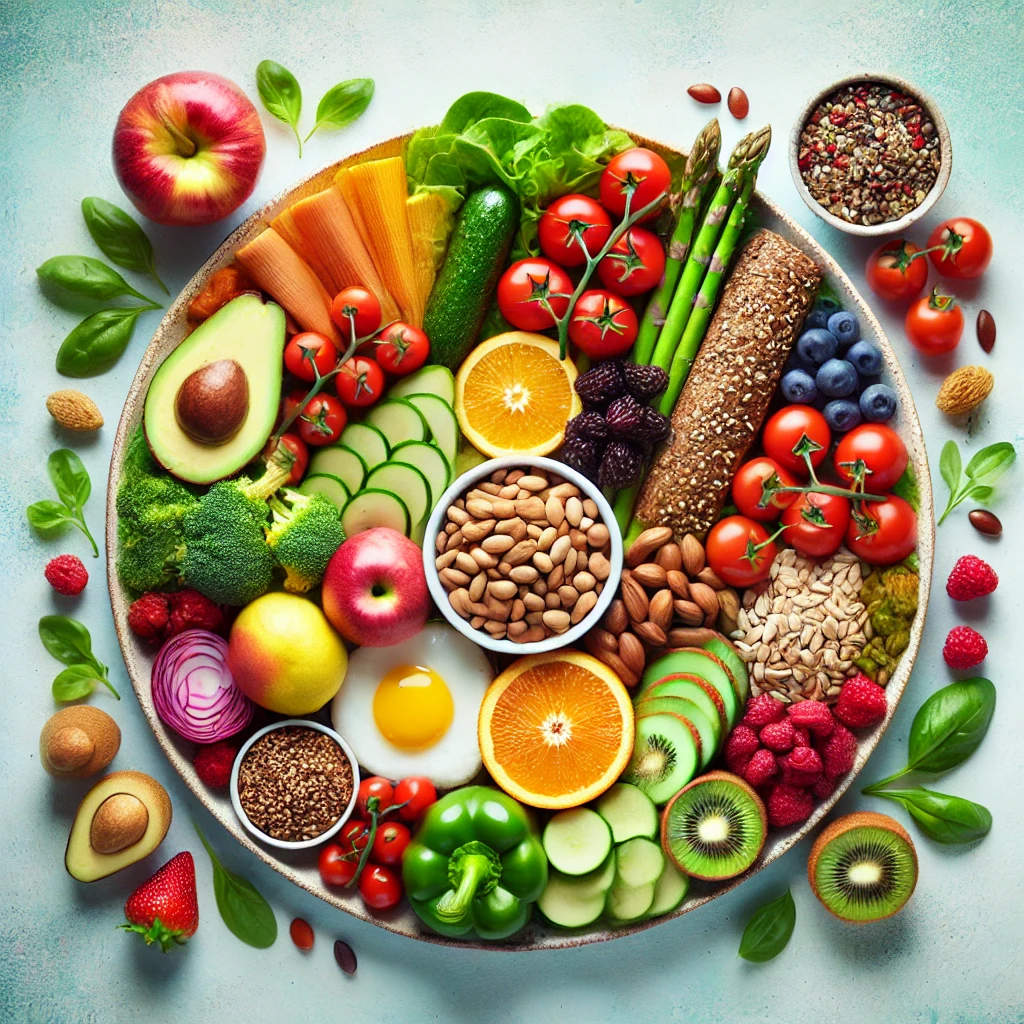Below are 8 tips for healthy eating and useful recommendations on how you can improve your diet and follow healthy food habits.

The main nutritional guideline is to eat the appropriate amount of calories for how active you are, and again, energy should be consumed equal to energy spent.
In nutrition terms, if a person smokes more calories than are required by his/her body, they are stored in the body in the form of fat, making the person overweight. And if you eat too little, you will starve and therefore shed weight if that is what you intended.
Based on the research, the best mechanism to adopt in order to redress the imbalance in nutrient variety is to consume a variety of foods regularly.
The recommended daily intakes of calories for adults are 2500 kcal (10 500 kJ) for males and 2000 kcal (8400 kJ) for females.
This figure is particularly for the UK and suggests that many of the grown-up population is coming in contact with more calories than what the body needs and should therefore contain.
1. High-fiber, starchy carbohydrates should be the focus of your meals.
Emphasize taking more fiber-abundant foods, including whole grain pasta, brown rice, and potatoes with their skin. It’s recommended that more than a third of the food you consume should be complex carbohydrates to help you feel full and contain fewer calories than other foods.
2. Include more fruits and vegetables in to the diet
The recommended servings should be at least 5 of five different fruits and vegetables per day. They can be eaten fresh, frozen, canned, dried, or in the form of juice. One serving can be defined as 80 g for fresh, frozen, or canned forms of fruits and vegetables; 30 g for dried fruits; and 150 ml for juices. Avoid taking many products, such as juice and smoothies, because they contain a lot of sugar.
3. Taking fish in your diet is encouraged, especially omega-3 fatty acid fish.
Fish is important due to essential nutrients and protein. Try and ensure that you take at least two portions of fish per week, with one of them being that of oily fish. These fish contain omega-3 fatty acids that help reduce instances of heart disease. Some types of fish should be eaten less frequently than is suggested by the ordinary calorie-conscious diet.
4. Also remove, as much as possible, saturated fats and sugars from your diet.
Be careful with what fats you eat and how much fat you take because a high intake of saturated fat means a high level of blood cholesterol, which poses a risk factor for heart disease. Recommended dietary allowances for saturated fats per day are 30g for males and 20g for females. Cut down on foods packed with saturated fats and switch to those that are saturated instead.
5. Your daily intake of salt should not exceed 6 grams for an adult
One major disadvantage of excessive salt consumption is that it raises the user’s blood pressure level, and therefore the tendency of developing heart disease or stroke is very high. More than 75% of the salt is consumed through processed foods and canned products, for foods with less than 1.5 g of salt per 100 g. It is recommended that people aged over 18 should consume no more than 6 g of salt daily, which is equivalent to one level teaspoon.
6. Do sufficient exercise and stay fit
Counquering, healthy eating plays a role in connection with physical activity to keep major diseases at bay. There are great benefits to exercise, but being at a healthy weight is an important part of good health. If you are among those that want to lose some kilos, ensure that you take fewer calories than you burn. This is by reducing the amount of food you take and increasing the amount of energy your body uses.
7. Stay hydrated
In that case, it is recommended to ingest six to eight glasses of fluids daily besides water consumed from food sources. Avoid sweetened drinks and replace them with water, lower-fat milk, or unsweetened tea and coffee. Curb on the take and intake of added sugars and foods that contain added sugar, including fruits and vegetable juices and smoothies.
8. Don’t skip breakfast
Breakfast is one of the most important meals that can source nutrients that are required by the body to function. It has been found earlier that consumption of fiber-rich, low-fat foods, especially at breakfast, helps in weight reduction. Avoid unhealthy breakfast choices such as sugary cereals that come with full cream milk and fresh fruits sliced in half.

More in:
1. Healthy Eating Tips: How To Build Your Diet For The New Year In 2025
2. Boost Confidence and Performance with Penirum A+
3. The Benefits of Matcha, Spirulina, and Other Superfoods
4. CholestOff: An Excellent Addition to the Routine Therapy for Patients with Hypercholesterolemia
5. The Science Behind Keto-Guru: How It Can Help You Along Your Ketogenic Diet
